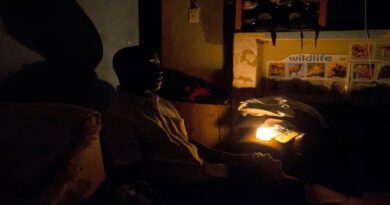Joburg property owners and managers turn up the heat over backdated charges
Johannesburg property owners and managers are turning up the heat on the City of Johannesburg (CoJ) over back-dated charges.
A dispute between the non-profit Johannesburg Property Owners and Managers Association (JPOMA) about millions of rands in back-billed refuse charges is set to escalate with a further high court application now being prepared to challenge the same process that CoJ has applied to sewer charges.
JPOMA last month lodged a high court class action on behalf of 42 applicants to challenge the CoJ and its dedicated refuse collector Pikitup over refuse removal charges that were backdated to 2018.
Read: R21m in Joburg backdated ‘refuse recalculation’ bills to be challenged in court
The CoJ has until April 19 to file its notice of intention to oppose the application brought by companies that own rental accommodation in the Johannesburg inner city and are responsible for about 7 333 residential units housing lower and middle-income households.
The dispute is about the recalculation of refuse charges on almost a hundred inner-city property accounts amounting to more than R21 million, which JPOMA maintains contravenes the CoJ’s own bylaws.
Disconnections, hefty increases
JPOMA chair Shaun Streaton said they are disappointed that the CoJ is continuing to issue notices of disconnection on back-billed accounts despite promising to suspend any disconnections pending the outcome of the court case.
“In addition, it keeps insisting that our members sign acknowledgements of debt, which we unequivocally oppose,” he said.
Streaton referred to the CoJ’s draft 2022 Integrated Development Plan, which he says proposes hefty increases in all tariffs for the 2022/2023 fiscal year, including 4.85% on rates, 9.61% on electricity, 9.75% each on water and sewer, and 5% on refuse.
He said the CoJ has now also back-billed sectional title properties for sewage for three-and-a-half years, regardless of size, whether these properties are occupied or not, or location.
“A flat in the inner city is now expected to pay the same sewer rates as a 300m² erf in the suburbs,” he said.
“These unlawful increases, coupled with crippling back billing, will destroy the affordable housing market in the inner city.”
Streaton claimed the CoJ is trying to balance the expense side of its budget with ludicrous increases, tariff changes and unlawful back-dated charges.
Errors, unfair billing
The JPOMA regularly receives calls from the public, highlighting that this issue is not isolated to the inner city, he said.
“And the more we hear, the more we realise the extent of the billing errors and unfair billing,” he said.
Streaton added that the CoJ had converted one JPOMA member’s property back to a business tariff despite it being 100% residential.
“CoJ states that because there is a crèche on the property, it is a business. There is no crèche, yet the inspector refuses to meet with them.
“This unwillingness of the city to even discuss dragging issues will further force tenants to the informal market, where they don’t have to pay,” he said.
Read: Living off trash: SA’s waste pickers reclaim the streets
Service delivery issues
Streaton added that JPOMA members pay more than R80 million to the CoJ every month while the city council has categorically failed in the execution of its duties to keep the city clean and safe while vital infrastructure, such as roads, pavements, lighting and more, have been left to crumble.
“Service delivery is at an all-time low, yet the city charges above-inflation increases year after year for electricity, water and sewer.
“Our members have contributed so much to making the inner city habitable, including paying private companies to provide the cleaning and security that COJ has failed to do.
“We have a thriving community of tenants without whom CoJ’s expressed wish of being seen as a ‘world-class African city’ will come to nothing.
Strongarm tactics
“The strongarm tactics employed by the city against those providing homes for this community is inequitable and will destroy businesses that keep a community in balance. This simply has to be challenged,” he said.
Comment has been requested from the CoJ on the JPOMA’s high court applications and claims. This article will be updated to include its comments once they are received.
Reaching for more
The CoJ has also been involved in spats with residents and non-profit organisations about levies it planned to introduce.
The city announced in May 2021 that it would drop a proposed R50 recycling levy from Budget 2021/22. It intended to implement the levy on households from July 1 last year as an addition to the existing refuse removal charge.
Read: City of Joburg’s R50-a-month recycling levy is nonsensical
It also dropped a planned new prepaid electricity levy.
The Organisation Undoing Tax Abuse (Outa) said at the time the scrapping of these two planned levies was a victory for active citizens, adding: “This is why it is crucial for residents to participate in the public comment opportunities.”
City of Johannesburg spokesperson Nthatisi Modingoane confirmed on Monday that the city has received service of a review application instituted by, among others, JPOMA.
Modingoane said in terms of this review, JPOMA and the other applicants seek an order essentially setting aside the city’s tariff of charges for solid waste services – the refuse removal tariff – for the period 2018 to 2021.
“The city and its attorneys are currently carefully considering the review application with the aim of opposing the relief being sought,” he said.
“The city’s position is that JPOMA’s review application is without merit as the city’s budgeting and tariff approval processes were lawfully approved and implemented in accordance with relevant provisions of the Local Government: Municipal Systems Act 32 of 2000, the Local Government: Municipal Finance Management Act 56 of 2003, and the Constitution.”
Source: moneyweb.co.za


